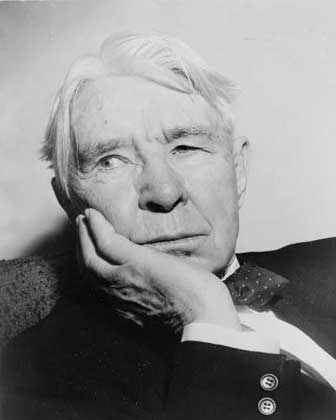The directory «Plots»
Sandburg Carl August
(1878–1967)

American poet and biographer, b. Galesburg, Ill. The son of poor Swedish immigrants, he left school at the age of 13 and became a day laborer. He served in the Spanish-American War and, after returning to Galesburg, attended Lombard College (now Knox College). In 1902 he went to work as a newspaperman in Milwaukee. In 1908 he married Lillian Steichen, sister of the photographer Edward Steichen. From 1910 to 1912 he was secretary to the Socialist mayor of Milwaukee. Sandburg later moved to Chicago, where he continued his journalism career, becoming in 1917 an editorial writer for the Chicago Daily News. His poetry first began to attract attention in Harriet Monroe’s magazine Poetry. With the appearance of his Chicago Poems (1916), Cornhuskers (1918), Smoke and Steel (1920), and Slabs of the Sunburnt West (1922), his reputation was established. Among his later volumes of verse are Good Morning, America (1928), The People, Yes (1936), Complete Poems (1950; Pulitzer Prize), Harvest Poems, 1910–1960 (1960), and Honey and Salt (1963). Sandburg drew most of his inspiration from American history and was profoundly influenced by Walt Whitman. His verse is vigorous and impressionistic, written without regard for conventional meter and form, in language both simple and noble. Much of his poetry celebrates the beauty of ordinary people and things. Sandburg’s most ambitious work was his six-volume biography of Abraham Lincoln (1926–39); this monumental work exalts Lincoln as the symbol and embodiment of the American spirit. The last four volumes won the Pulitzer Prize. At 70, Sandburg produced his first work of fiction, the novel Remembrance Rock (1948), a panoramic epic of America. His other works include The American Songbag (1927), a collection of folk ballads and songs; children’s books, such as Rootabaga Stories (1922); and the autobiographical Always the Young Strangers (1953).
Sweden, 1988, Carl Sanburg and Jenny Linn
USA, 1978, Carl Sandburg